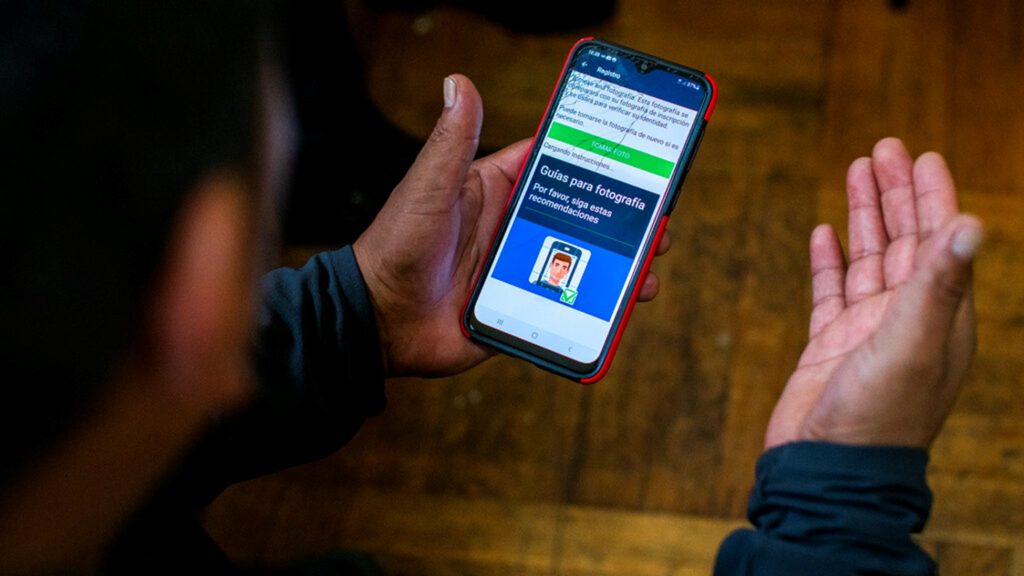
During the COVID-19 pandemic, U.S. officials have been using an expanded smartphone app called “SmartLink” that allows them to track migrants who have been released from detention facilities to ensure that they attend their deportation hearings.
Over 125,000 people have been asked to install the application on their phones – which allows immigration officials to require immigrants to send a selfie or make/receive a phone call when asked.
Although more convenient than an ankle monitor, advocates argue that the use of SmartLink is still unjustified since many immigrants had to pay bonds to get out of the detention facilities. Immigration proceedings are administrative but not criminal, and most people with cases before courts aren’t detained.
SmartLink can also be stressful for migrants who came to the U.S. fleeing persecution in their countries, and who fear that a technological issue could lead to a missed check-in.
Additionally, advocates are concerned about how the U.S. government could gather the data from the application to track migrants’ whereabouts and contacts and then use it to arrest others on immigration violations.
“It’s making it much easier for the government to track a larger number of people,” said Jacinta Gonzalez, Senior Campaign Director at Mijente, a Latino rights organization.
Meanwhile, the immigration court system is facing its biggest backlog in history, with an average wait time of 5 years for an initial hearing – meaning that immigrants must wait years for a decision on their case.
In a 2019 Congressional Research Service report, ICE denied that the app is being used to continually monitor migrants, but advocates disagree. They noted that, 2 years ago, immigration investigators pulled GPS data from the ankle monitors of Mississippi poultry plant workers to help build a case for a large workplace raid.
Rosanne Flores, Paralegal at Hilf and Hilf, said she recently received panicked calls from clients because the app wasn’t working. Her clients ended up reporting in-person to the immigration agents’ offices instead of virtually checking in.
“I see the agony it causes the clients. My heart goes out to them,” Flores expressed.

Recent Comments